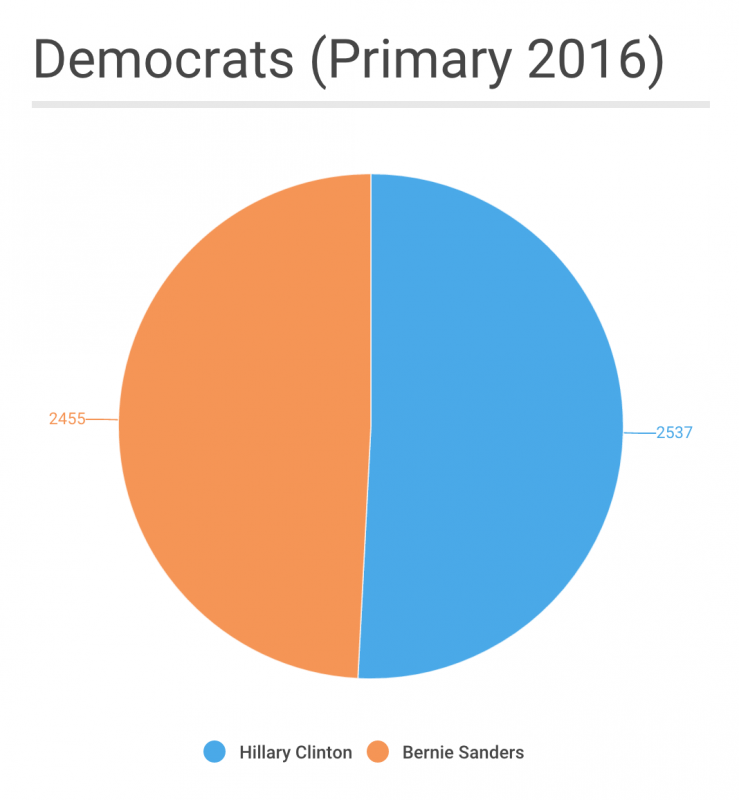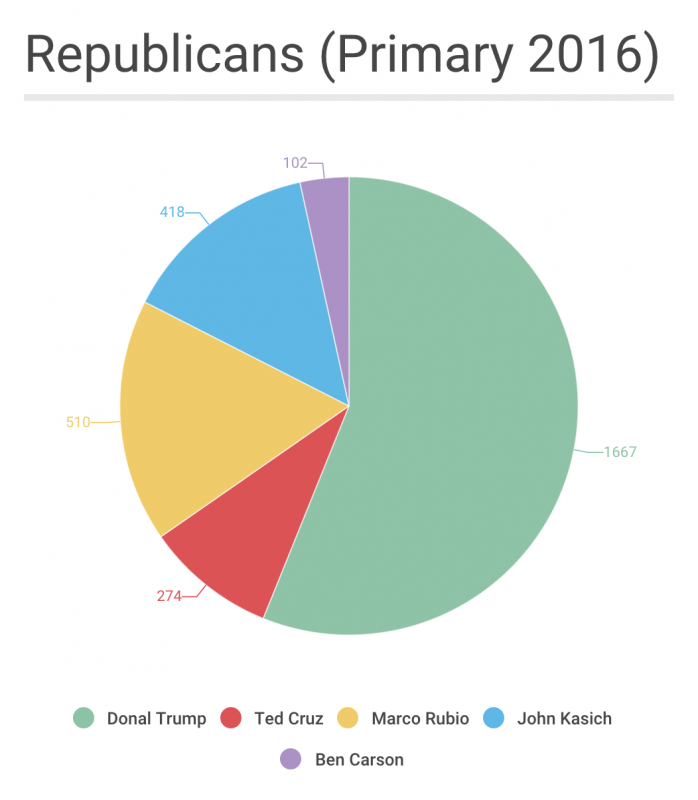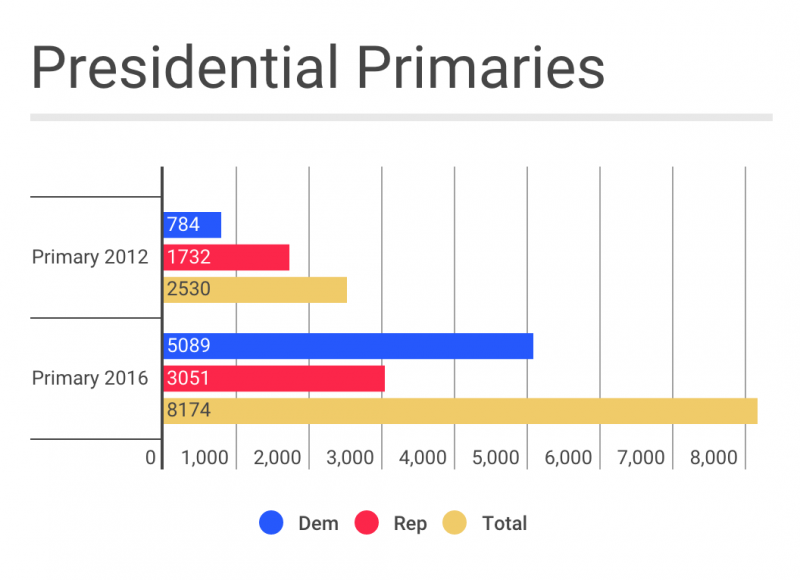Clinton wins by a slim margin, Trump dominates in presidential primary
Nearly 40 percent of Dartmouth’s registered voters came out on Election Day to weigh in during the presidential primary. Former Secretary of State Hillary Clinton and businessman and television personality Donald Trump were the night’s winners.
Clinton beat out Bernie Sanders by a slight margin, 49 percent to 48 percent. Clinton picked up 2,537 votes, while Sanders received 2,455.
Trump steamrolled the competition, picking up 1,667 votes, or 54 percent of the Republican’s vote in Dartmouth. Marco Rubio came in second with 16 percent, John Kasich was third with 13 percent and Ted Cruz was fourth with just under 9 percent.
Turnout in Dartmouth was much higher than in the last primary. According to data from the state, 2,530 voters turned out during the last presidential primary, which was held on March 6, 2012. Of that total, 784 voted for the Democratic Party, and 1,732 voted for the Republican Party.
This year’s president primary drew in 8,174 registered voters. That's about 38 percent of the 21,473 registered voters in Dartmouth. This year, 5,089 votes were cast for the Democratic Party and 3,051 voted for the Republican Party, 3 voted for the Green Rainbow Party. Data from the Town Clerk's office states there are 7,511 registered Democrats in town, and 2,177 registered Republicans.
“I’m totally thrilled and glad that Dartmouth delivered,” said Leslie Lawrence, a volunteer with the Clinton campaign. “We’re all positive about Hillary’s chance of getting the nomination.”
On Super Tuesday, which was March 1 this year, Democrats voted in 11 states and American Samoa, which accounted for 865 delegates. There are 3,884 delegates available for Democrats total. Clinton or Sanders will need 2,383 delegates to win.
Republicans voted in 11 states on Super Tuesday, accounting for 595 delegates. The Republican candidate will need to take 1,237 delegates of the 2,339 available.
Currently, Trump and Clinton have the majority of the delegates in their respective parties.
Across the nation, Trump won seven states, including Massachusetts, and now has 319 delegates total. In all the states that Trump won, he won Massachusetts by the highest margin: 49 percent. Ted Cruz won three states, and Rubio won Minnesota.
Clinton won seven states, bringing her total delegate number up to 1,034. Democrats had the closest contest in the nation during Super Tuesday, with Clinton winning 50 percent of the state’s vote and Sanders winning 49 percent. Sanders won four states, and now has a total of 408 delegates.
As for the possibility of a Trump versus Clinton presidential election, Lawrence said the debates could be rocky for Clinton but believes her firsthand knowledge of domestic and global issues will put her ahead of Trump.
“When my head hits the pillow tonight, I have to believe that Hillary is going to be nominated and elected president of the United States,” said Lawrence on primary night.
Bob Gauvin, who cast his vote for Rubio early in the morning on Super Tuesday, said he was fairly certain that Trump was going to take the night.
“The people that I know that like Trump are fed up with the Republican establishment. It goes all the way back to Bush,” said Gauvin. “[Trump] is definitely going to shake things up. No question of that.”
As to whether Gauvin would support Trump should he become the nominee, Gauvin said he was unsure.
“I don’t know. I can’t imagine myself supporting Trump. I can’t imagine myself supporting Hillary, either,” he said.
The winners of this primary season will be on the ballot during the presidential election on Nov. 8.
During the last president election, 16,024 registered voters in Dartmouth showed up at the polls. 9,817 voted for incumbent Barack Obama and 5,964 voted for challenger Mitt Romney.

















